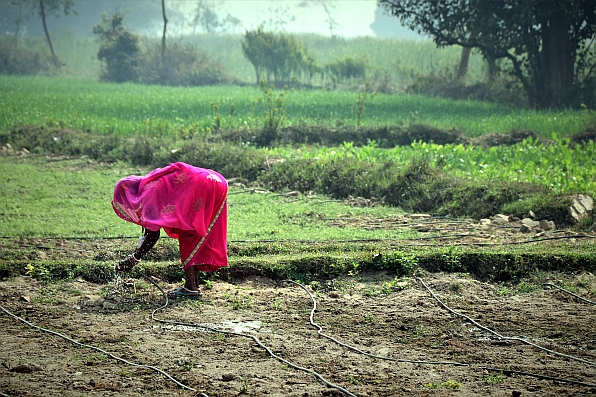New evidence on the effects of integrating farmers with the global food chain
Smallholder agriculture – the safety net of many rural people in developing countries – faces a future of increasing volatility and risk. This is the result of more farmers becoming part of the global economy and of their exposure to climate change impacts.

More collective action in rural communities would seem to be the logical response. But according to a study published recently in the Proceedings of the National Academy of Sciences of the USA, just the opposite is likely to happen when collective risks increase: Community members show an inclination to invest less in shared infrastructure, such as irrigation systems.
This was the conclusion of research to which the International Water Management Institute (IWMI) contributed. The study authors gauged participants’ response to risks threatening their private versus collecting earnings, using a public goods game in 118 small-scale rice farming communities of China, Colombia, Nepal and Thailand.
Across countries, risk to collective earnings prompted the lowest investment in public goods. The only country in which a preference for communal investment declined significantly in response to increased risk for private earnings was Nepal, where outmigration is rampant and remittances account for 30 percent of gross domestic product. This suggests that if the flow of remittances from Nepali migrants is jeopardized, individual community members will have less money to invest in public goods.
Small-scale farmers connected with the global economy will gradually gain access to productivity-increasing technologies that reduce the need for cooperation. In the meantime, though, investing in shared resources remains necessary for increasing productivity and strengthening food security, especially in rural communities that face labor shortages resulting from outmigration.
Read the full paper, co-authored by IWMI Nepal researcher Ram Bastakoti.

